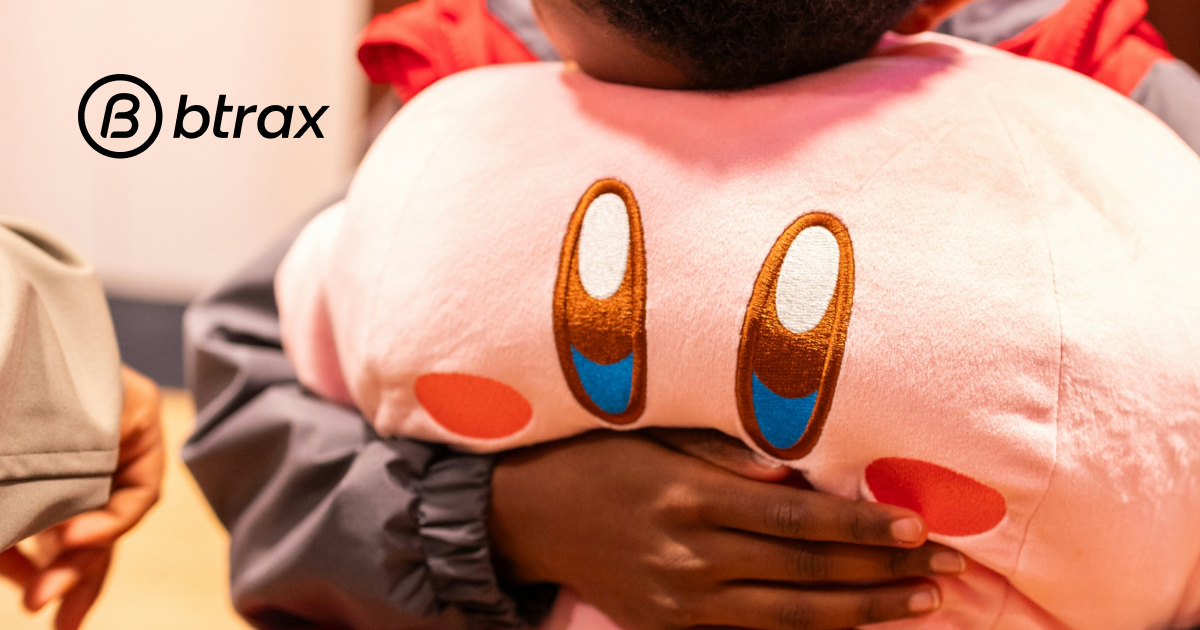
Btrax Design Company > Freshtrax > Top Japanese So...
Top Japanese Social Media Networks
Want to get the latest on the Japanese social media landscape? Check out the newest version of this article.
Any business that wants to expand to Japan needs to understand the digital landscape there today. Although popular American social media networks like Facebook and Twitter are widely used in Japan, there are several Japan-only social media networks that overseas companies need to be aware of, too.
We Are Social compiled some infographics on the digital landscape of Japan. Let’s take a look below.
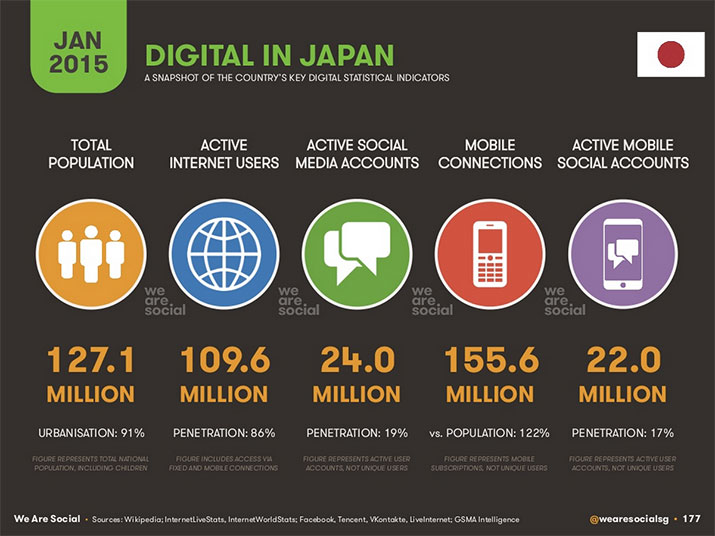
Japan has a very high internet penetration, at 86 percent – they are the fourth largest Internet population in the world after China, USA and India. Mobile penetration is 122 percent, which means on average, people own more than one mobile device. In terms of social media use (below), there are almost as many account access via mobile (22M) as the total number of active social media accounts, which is over 90% of all social media usage. This means that the majority of people who use social media use it on mobile as well as desktop.
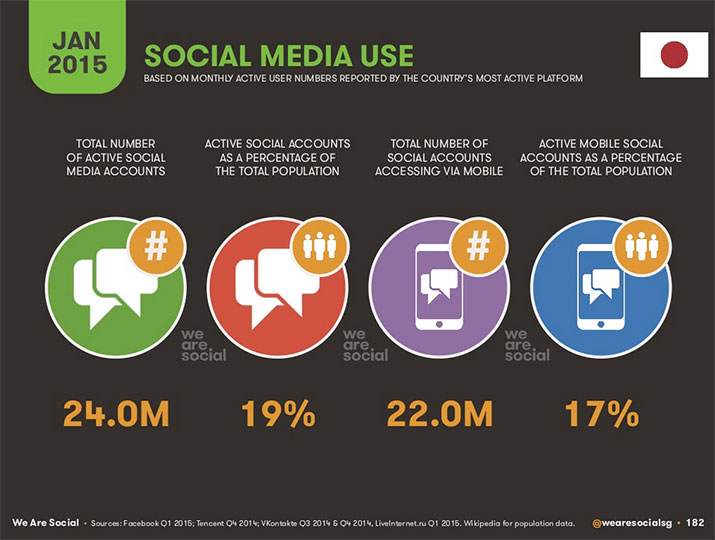
Below is an overall ranking of the most popular social media networks and messaging apps in Japan for all ages. The results are based on a survey published in 2014. The sample size was 1500 and between 13 to 69 years old.
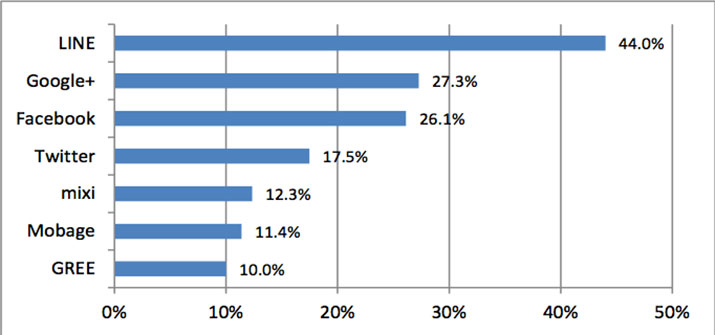
When you segment the different age groups (by decade, from the 10s to the 60s), the results look very different.
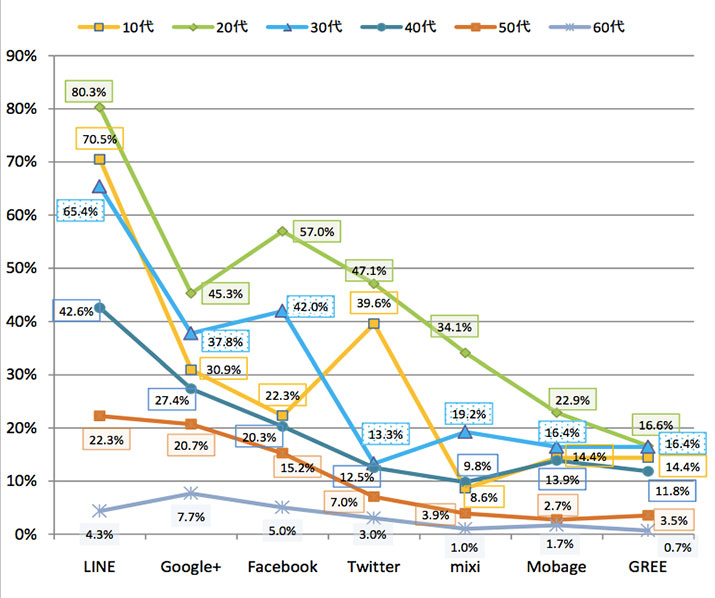
We can observe the following trends from the graph above:
- Those in their 20s are the most avid social media users across the board.
- Twitter is disproportionately popular among Japanese teens.
- Facebook is more popular with millennials and less popular with teens.
- Millennials still use mixi but teens don’t really anymore.
- Line is the most popular social media network across the board except for seniors in their 60s.
Line: Japan’s Top Mobile Messaging App
Line was launched in 2011 by NHN Japan, the Japanese arm of South Korean giant Naver. The mobile messaging app began as a means to communicate during the 2011 Tohoku earthquake and tsunami. Its biggest competitors include WhatsApp, Kakao Talk, WeChat and Kik.
Line’s reported revenue of $656 million in 2014 comes from a range of sources:
- Paid games that can be played solo or or with other users
- Stickers that can be purchased to convey a wide range of emotions
- Advertising deals with brands and celebrities that want to reach Line’s user base
- Line branded merchandise (Line has a shop in Harajuku called Line Friends which sells Line-related products featuring characters from their stickers)
“In Japan, young people often swap Line IDs like only a few years ago they’d swap email addresses or phone numbers,” says Brian Ashcraft, an Osaka-based correspondent for gaming site Kotaku.
【Related article】The Ultimate Guide to Using the LINE App for Business
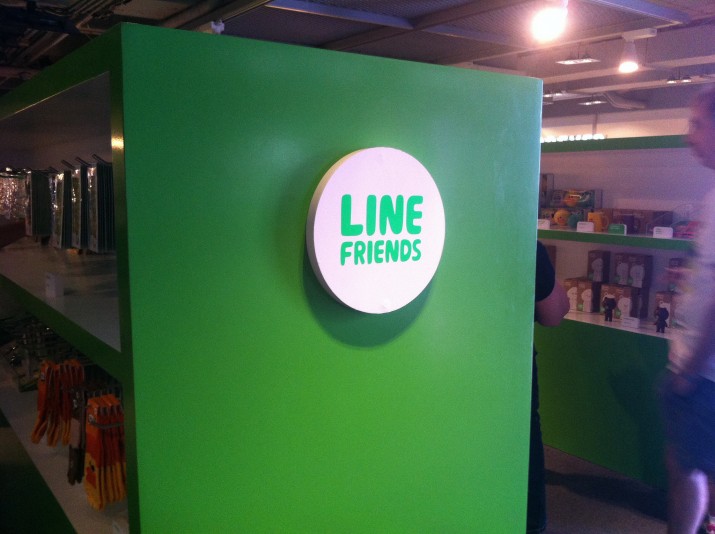
Photo by: Jon Russell
Twitter in Japan
According to a new study, half of all social network users in Japan use Twitter, and eMarketer expects 26 million people to be on the social media network in Japan in 2015, representing 20.5 percent of the Japanese population. Twitter usage is expect to continue to rise in Japan, with a predicted 30.1 million users in 2018.
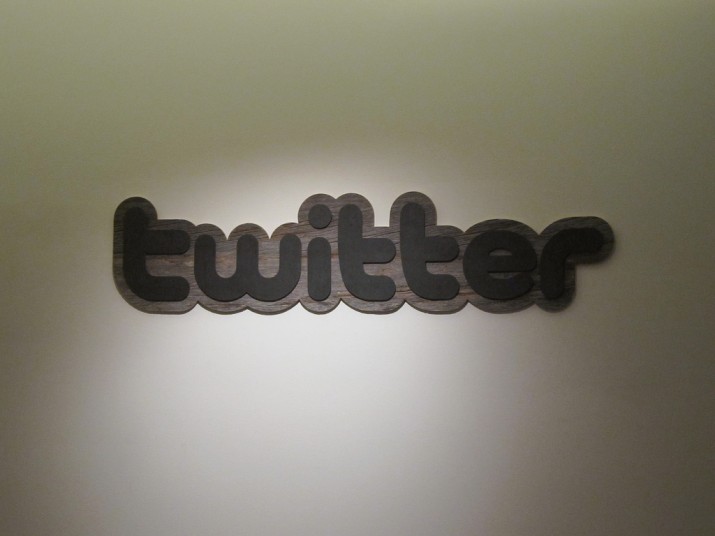
Photo by: Scott Beale / Laughing Squid
There are many reasons as to why Twitter was able to take off in Japan. Below are several of those reasons:
- Anonymity: Privacy is important in Japan, and Twitter allows users to use fake names. Twitter serves as a platform for Japanese users to express emotion anonymously.
- 140 Characters: In Japanese, you can say almost double what you can say in English with 140 characters.
- Mobile: Twitter began to catch on in Japan as early as 2007 when it was gaining popularity in the States. Japanese feature phones at the time already had Internet capability and there were various feature phone clients designed for Twitter. The most popular was Movatwitter.
With a high ease of use, combined with anonymity and the ability to express detailed thoughts in 140 characters, it’s not a mystery why Twitter is so popular in Japan.
Facebook in Japan
Facebook has 22 million users in Japan as of January 2015. Initially, Facebook had trouble gaining traction because users had to provide their real names to register (which is one reason why Twitter is popular). However, in recent years, Japan began to warm to Facebook, swapping out the Japanese counterpart Mixi for the American social networking giant.
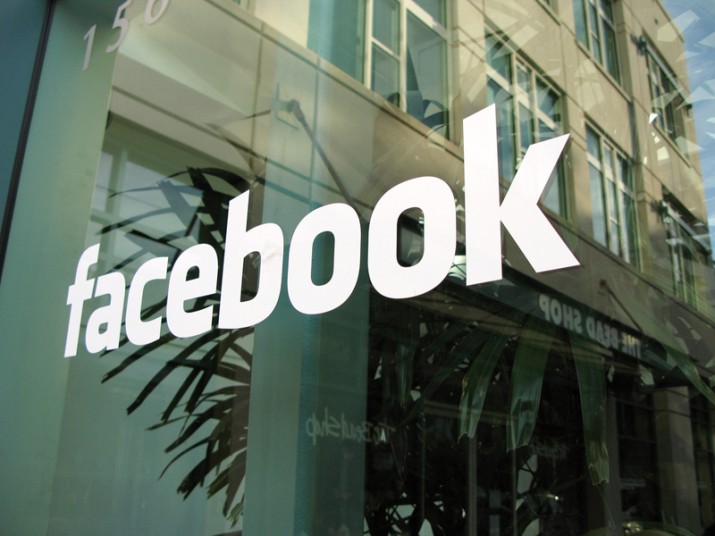
Photo by: Eston Bond
One reason why Facebook gained popularity was due to the Japanese release of the film, The Social Network, in 2011. “Until then, few Japanese had heard of Facebook,” says Atsushi Kametsu, an analyst at the Nomura Research Institute in Yokohama.
Another reason was the 2011 Tohoku earthquake. While cell phone lines were affected by the disaster, data channels remained open and became the most effective way to stay in touch. Facebook’s policy of using real names allowed people to find accurate information about their loved ones.
One peculiar feature about Facebook in Japan is that many Japanese people use it the way Americans would use LinkedIn. Tokyo Venture Capitalist James Riney of DeNA wrote a thoughtful piece about why this might be the case.
The Future of Japanese Social Media
With the rise and fall of original Japanese social media giant Mixi (now overtaken by Facebook in the number of users), the social space in Japan has changed a lot in the past few years. Research by What Japan Thinks cites the globalness of Facebook as the top reason why Japanese people like to use it. Other reasons are that it is easy to find friends and the information is reliable because real names are used. Mixi is largely an anonymous social network where everyone uses an alias, so it’s no surprise that anonymity is a contributor to Mixi’s decline.
However, traditional social networking sites aside, Line is where the present is at for social networking in Japan. The mobile messaging app has 560 million registered users and 170 million monthly active users. For comparison, it took Facebook three years to reach 58 million users, but it took Line just over one year.
In a recent report, when asked what social media network they would least want to give up, Japanese consumers answered Line overwhelmingly (49 percent), while Twitter and Facebook sit at 19 and 18 percent respectively. Still, Facebook has a lot of growth potential in Japan and it remains to be seen how they will further integrate with the Japanese social fabric.



